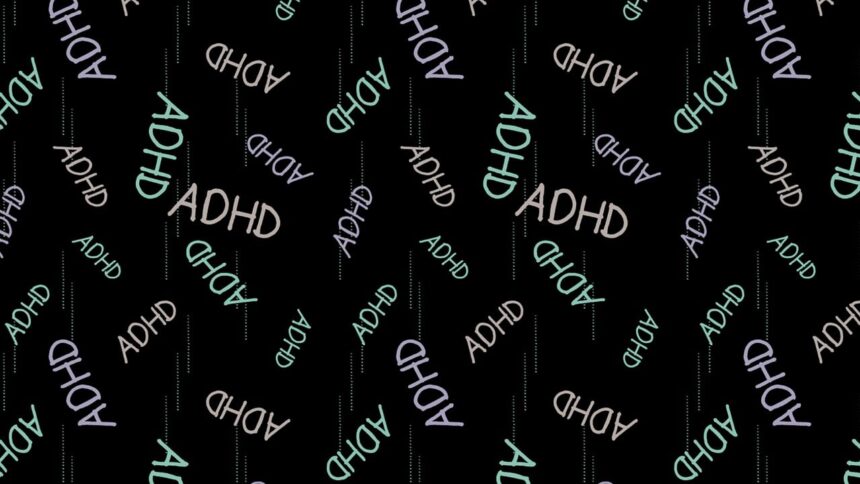Attention-Deficit/Hyperactivity Disorder (ADHD) is a childhood psychiatric disorder characterized by symptoms that involve inattention, impulsivity, and hyperactivity. Some of the consequences of ADHD are on the mental, social, and physical aspect of any person. It affects the young children as well as adults. This article will provide extensive information on how different and numerous ways ADHD adversely affects your health and all of the causes.
What is ADHD?
Neurodevelopmental disorders are quite a numerous category, and ADHD is identified in this category most often. According to APA, 3-5 percent of children worldwide have ADHD but other research indicate that up to 11% of children could be affected. Approximately 2 percent of adults suffer from ADHD, it is revealed last year Moreover, the adults with the above disorder are likely to take risk and commit errors than their peers without the disorder. 5% of the population and that is a lot of children who have been diagonised with this disease still suffer from it.
There are two main groups of signs that define ADHD:
1. Inattention: Lack of concentration, not being able to complete tasks, or to arrange work.
2. Hyperactivity or impulsivity: fidgeting, shifting a lot, getting restless easily, and making hasty decisions, with no regard to the aftermaths.
ADHD to the public is very diverse in that people with ADHD differ regarding the severity of the symptoms and how they manifest. This makes ADHD a very heterogeneous disease It would be crucial to get as much information as possible from all these subtypes.
Why Does ADHD Happen?
The exact cause of ADHD remains unknown although it is known to be a complex disorder that involves genetic, brain, as well as the environments. Let us break down each of these parts:
1. Genetic Factors
As other studies have found, it is clear that genetic have a very strong association with ADHD. Probability of a child suffering from attention problems is higher if he or she has a parent with ADHD proven from research on the subject. Studies estimate that approximately 74 percent of the ADHD cases run in families and are inherited from one generation to the other. This makes it one of the most genetic mental illnesses as stated by the researchers and scientists around the community.
Certain genes that regulate dopamine mainly, DAT and DRD4 are said to be associated with ADHD. Neurotransmitter dopamine was found to play a very significant role in modulating self-attention and in decision making of what to do next. These signs may have some things wrong in the dopamine pathways in someone diagnosed with ADHD.
2. Neurological Factors
Recent research through EEG has provided evidence that persons with ADHD differ in the structure of their brains and their functioning. In particular, there are big differences in the following areas:
Prefrontal Cortex: Sufferers from ADHD are known to have a lower level of cerebral flow in the neurons in the pre front area which is responsible for decision making and controlling of impulses. This lower level of activity could be the reason why the people with ADHD have issue in the concentration and impulsivity.
It is also said that some people with ADHD have a smaller basal ganglia which are used in the brain for learning and muscle control. Disorder in this area can a lead to hyperactivity and recklessness.
Cerebellum: Those with ADHD can also suffer from some complication involving cerebellum this is the part of the brain that deals with actions and information processing. This can make it difficult to synchronize the limbs and tasks such as; picking up items and writing.
Neurotransmitter changes: alterations in serotonin, nor-epinephrine and dopamine are also thought to occur in ADHD as well. ADHD drugs are mostly associated with improving the efficiency of these chemicals and hence enables children focus and have control on their actions.
3. Environment Factors
Genetic make up and neurological functions are useful, however other functions require extra inputs from external influences as well. Some things that might make getting ADHD more likely are:
Prenatal Exposures: But there is the fact that children who had mothers who smoked, drink or abuse drugs during pregnancies are likely to be affected by ADHD. Also, leadership’s early life environmental toxins such as lead has been associated with the growth of ADHD.
Premature Birth: Children who were either born prematurely or at a low birth weight are more likely to receive the ADHD because the brains are not developing properly.
Life Stress in Early Childhood: Basic coping skills that enhance one’s ability to handle stress may also be lost and this may lead to ADHD in adulthood in kids who undergone stress, abuse, or neglect as babies. This normally alters the usual growing pattern of the stress response system, this implies that stress for a long period can cause symptoms of ADD/ADHD.
The Effects of ADHD on Health
ADHD can affect the psychological health of an individual as well as the physical health and these impacts are interrelated most of the time.

1. Effects on mental health
ADHD in particular has been known to present symptoms together with several other illnesses of the mental health category. The disorder can make it hard to think clearly, control your emotions, and behave properly, which can lead to:
Anxiety and sadness: That is why many of the people with ADHD, especially those who do not know about their condition or receive no treatment, have anxiety and sadness. Organizational and executive issues; difficulties in concentration; and interpersonal issues can lead to anger, low self-esteem as well as feelings of inadequacy. Such problems may put you under pressure with stress indicators that can cause anxiety illnesses. Failure to meet the social and academic expectations that one imposes on him or herself will lead to depression in the long run.
There are children with ADHD who disobey and argue; they make or break their own rules, and are defiant when they are so inclined. This is also called oppositional defiant disorder (ODD) or conduct disorder or antisocial personality disorder. In the worst of times, a child with ADHD can develop Conduct disorder, which is a severa behavior issue in children that presents itself as aggressive or destructive behavior issue.
Sleep Disorders: ADHD is associated with various sleeping disorders among them being; insomnia, restless leg syndrome and delayed sleep phase syndrome. ADHD makes it hard for people to sit still and even think calmly and that’s why these people struggle to have quality and restful sleep at night. This can result in chronic sleep deprivation which then aggravates such symptoms as irritability and failure to focus.
2. Physical Health Effects
Aside from problems with mental health, ADHD can also have direct and indirect effects on physical health:
Increased Risk of Injury: Hypersensitivity or hyperactivity increases the propensities of crashes and injury, mostly if they are children. These may be anything from the basic daily falls, sporting injuries, major crashes, which are common among teens and especially the ADHD people.
Weight gain: Scientific work indicates that being an ADHD person increases one’s likelihood of weight gain. This could be attributed to a number of factors mainly including; consuming foods on impulse, taking unhealthy diets, or lack of sufficient exercise. Other ADHD medications can also reduce your appetite, which may lead to a binge when the drug’s effects wear off.
Heart Disease and High Blood Pressure: Research has indicated that if you have ADHD, then you are likely to receive a heart disease or high blood pressure. This may resulted to a higher risk due to stress and other emotional issues associated with ADHD besides living condition such as taking unhealthy foods, and little or no exercise.
Addiction: People who are teenagers, or those who have been diagnosed with, attention deficit-hyperactivity disorder (ADHD) have a higher probability of getting hooked to alcohol, nicotine, or even some form of illegal substances. This may not have anything to do with the fact that people who have this condition are usually impulsive and enjoy taking risks. Occasionally, persons with ADHD self-medicate for the disorder using some substances that they procure by themselves.
3. Effects of Treatment upon Social and Occupational Integration
But a mentioned before, ADHD is not limited to the aspect of health alone. This disease can make it harder to do well in school, at work, and with friends and family, which can lower your quality of life:
Academic Problems: ADHD children have early school difficulties because they ‘ Imagine that they cannot sit still for more than five minutes, complete a task or follow instructions.’ If the child fails to get this kind of help then they fail, they fail repeatedly, and there’s more drop out than any other age group.
Difficulties at Work: Employees diagnosed with ADHD may have problems in workplace. Lack of concentration, difficulty in coordination of chores and carelessness when working hampers job performance and productivity. Due to these problems, many people are forced to switch companies frequently or be stuck at the same rank, or even fired.
Social Connections: It can also affect a person’s interactions with family, friends, and peers making it difficult for the child to socialize with other children. Thus children with ADHD are likely to be regarded as troublesome or worthless disturbances that can scarcely be managed; as such they can easily feel left out. In view of the fact that people with ADHD have impulsivity disorder, short term memory disorder, and disorder in emotional regulation, they may have difficulty in maintaining friendships, love relationships, or marriages.
How to Treat and Take Care of ADHD

ADHD is a disease which has many effects but this does not mean that it cannot be treated. It is an important fact that behavior changes, medicine, and changes to its lifestyle lead to the reduction of symptoms severity and the overall quality of life.
Behavioral treatment: Another way that may be employed in engaging a person with ADHD is through Cognitive-behavioral treatment popularized as CBT that is designed to assist an individual on how to handle the symptoms such as impulsiveness, inattention, and hyperactivity.
Medications: Thus, for the ADHDR management, methylphenidate and amphetamine-containing preparations (Adderall) are prescribed due to increasing dopamine and norepinephrine content in the cortex area of the brain. Other medications that do not work by stimulating the brain can also be administered for instance atomoxetine.
Lifestyle Adjustments: Implementing some changes in your lifestyle such as healthy diet, a certain kind of exercise, and even a certain level of discipline into your daily routine will also assist you overcome the symptoms of ADHD. You must also have good sleep hygiene because lack of sleep makes conditions worse also In addition, excessive sleep may also worsen conditions.
Read More on How to Get Rid of Stress
Urdu Bar is not a certified medical clinic and if you are not sure of what are you going through or you are on some sort of meditation please consider communicating with a verified specialist.



